Get Septic System Installation in Denver County, CO
Septic system installation services for Denver County and nearby areas help property owners solve wastewater management problems by installing or replacing septic tanks and drain fields.
Property owners in Denver County, CO, considering a septic system installation often seek reliable, experienced service providers to handle this important project. Whether planning a new property development, upgrading an existing system, or replacing an aging setup, exploring local contractor options can help ensure the work is completed to meet regional requirements and standards. Staying informed about available services and comparing local contractors can support a smooth planning process and help identify the most suitable solutions for your property’s needs.
Continuing to explore your options allows property owners to understand the range of septic installation services available in Denver County and nearby areas. Connecting with experienced local contractors can provide insights into the best practices for your specific site conditions and project goals. Keep reading to learn more about how professional septic system installation can support your property’s functionality and long-term performance.
- Septic System Installation - needed when building a new home or expanding a property in neighborhoods around Denver County, CO.
- Septic System Replacement - required when existing systems fail or show signs of malfunction in areas with older infrastructure.
- Septic System Upgrades - necessary to meet updated regulations or increase capacity for growing households in local communities.
- Septic System Inspection - recommended before purchasing a property or as part of routine maintenance in residential neighborhoods.
- Septic System Design - sought when planning new developments or custom properties in suburban or rural parts of the region.
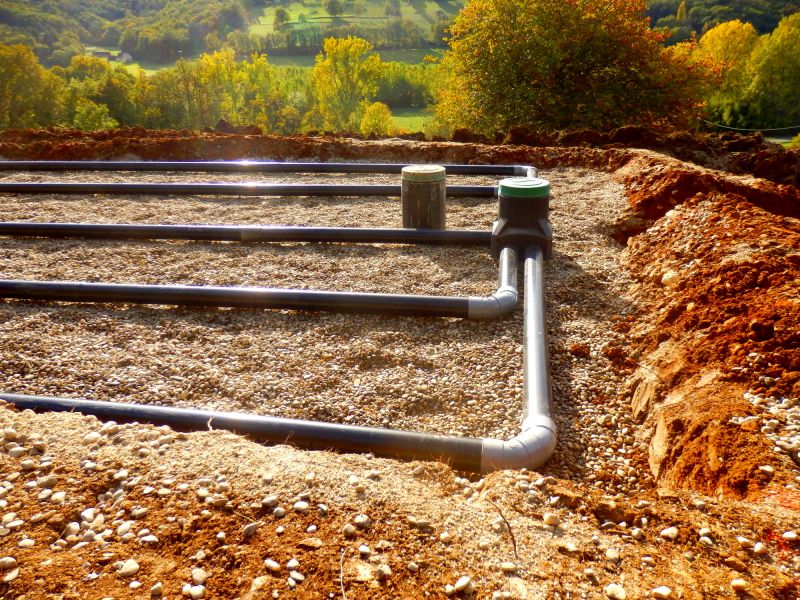
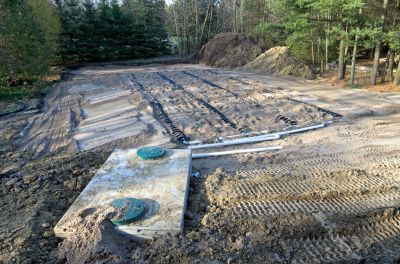
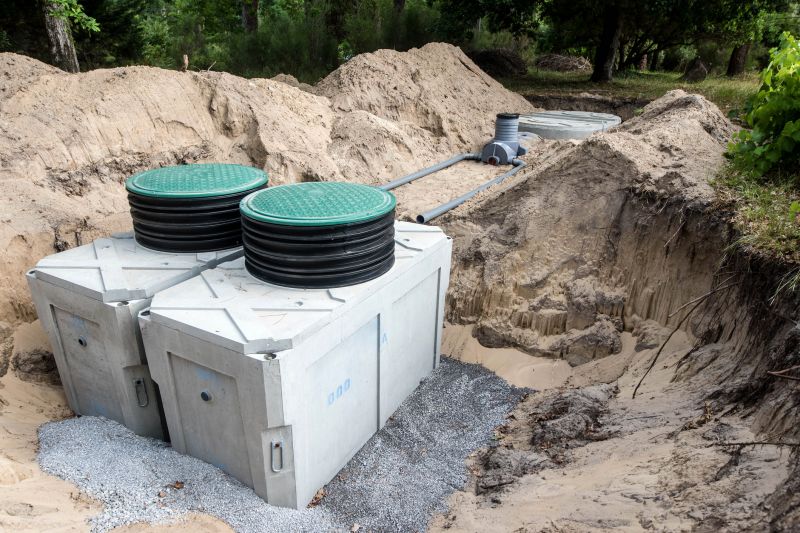
Septic system installation involves setting up a self-contained wastewater management system designed to treat and dispose of household sewage on-site. This process typically includes excavating the area to place the septic tank, connecting it to the home's plumbing system, and installing drain fields that safely disperse treated water into the soil. Proper installation ensures that wastewater is handled efficiently and safely, helping to prevent common issues such as backups, foul odors, and groundwater contamination. Experienced local contractors can assess the property’s layout and soil conditions to recommend the most suitable system type and ensure it functions reliably over time.
This service is essential for homes that are not connected to municipal sewer lines, especially in rural or semi-rural areas. Septic system installation helps solve problems related to inadequate wastewater management, including slow drains, persistent odors, or frequent backups. It also addresses concerns about environmental safety by ensuring that waste is properly treated and dispersed. When a property’s existing septic system is outdated, damaged, or failing to meet the household’s needs, professional installation can restore proper function and compliance with local regulations.
Properties that typically require septic system installation include single-family homes, rural residences, vacation cabins, and some commercial properties in areas without access to municipal sewer infrastructure. These properties often rely on septic systems because connecting to city sewer lines is either impractical or cost-prohibitive. Local service providers can evaluate the specific needs of each property, considering factors such as size, usage, and soil conditions, to recommend and install a septic system that meets the household’s wastewater management requirements.
Homeowners should consider septic system installation when building a new home in an area without sewer access or if existing systems are failing and need replacement. Signs that a septic system may need attention include frequent backups, slow draining fixtures, or unexplained lush patches of grass over the drain field. By working with experienced local contractors, homeowners can ensure that their property has a properly installed septic system that functions efficiently, minimizes environmental impact, and complies with local health standards.
The overview below groups typical Septic System Installation projects into broad ranges so you can see how smaller, mid-sized, and larger jobs often compare in Denver County, CO.
In many markets, a large share of routine jobs stays in the lower and middle ranges, while only a smaller percentage of projects moves into the highest bands when the work is more complex or site conditions are harder than average.
Smaller Repairs - Typical costs for routine repairs or maintenance on septic systems usually range from $250 to $600. Many common issues fall within this band, making it a common expense for local contractors to handle minor fixes.
Partial System Installations - Installing or upgrading parts of a septic system generally costs between $1,500 and $4,000. Projects in this range are common for homeowners needing mid-level improvements or repairs.
Full System Replacement - Replacing an entire septic system can range from $5,000 to $15,000, with larger, more complex projects sometimes reaching $20,000 or more. Many full replacements fall into the middle of this range, depending on site conditions.
Large or Custom Installations - Extensive or custom septic system installations, especially in challenging terrains, can cost $20,000+ and are less common. Local service providers can evaluate specific project needs to provide accurate estimates.
Actual totals will depend on details like access to the work area, the scope of the project, and the materials selected, so use these as general starting points rather than exact figures.
Drain Field Replacement - this project involves installing or replacing drain fields, requiring knowledge of soil conditions and underground piping similar to septic system installation.
Soil Testing and Site Assessment - assessing soil suitability and planning underground systems are essential skills shared with septic system installation projects.
Underground Utility Locating - identifying underground pipes and cables is a necessary step before installing septic components, utilizing similar tools and planning skills.
Water Line Installation - installing water supply lines involves trenching and underground work comparable to septic system setup.
Stormwater Drainage System Installation - designing and installing drainage systems requires planning and excavation skills akin to septic system projects.
Excavation and Site Preparation - preparing sites for various underground infrastructure projects, including septic systems, involves similar excavation techniques and planning expertise.
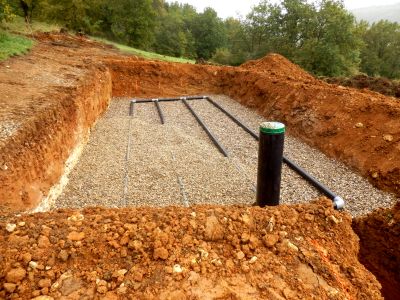
When comparing service providers for septic system installation, it’s important to consider the experience of local contractors with similar projects. Homeowners should look for professionals who have a proven track record of successfully completing septic installations in the area, especially those familiar with the specific soil conditions and regulations of Denver County and nearby communities. An experienced contractor can better anticipate potential challenges and ensure the installation meets local standards, leading to a smoother process and a system that functions reliably over time.
Clear, written expectations are essential when evaluating septic system installation services. Homeowners should seek contractors who provide detailed proposals outlining the scope of work, materials to be used, and any relevant procedures. Having this information in writing helps prevent misunderstandings and ensures everyone is aligned on project goals. Reputable service providers will be transparent about the process, allowing homeowners to make informed decisions and feel confident in the project's progress and outcome.
Good communication and reputable references are key factors in selecting local contractors for septic installation. Homeowners are encouraged to ask for references from past clients who had similar projects completed, as this can provide insight into the contractor’s reliability and quality of work. Additionally, service providers who are responsive and clear in their communication tend to facilitate a more positive experience, making it easier to address questions or concerns throughout the project. Connecting with experienced, well-reviewed local pros can help ensure the septic system installation is handled professionally and efficiently.
Property owners in Denver County, CO use Septic System Installation services for practical projects around their homes and businesses. This guide focuses on everyday jobs and straightforward project options.
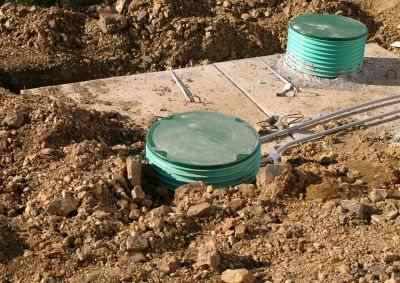
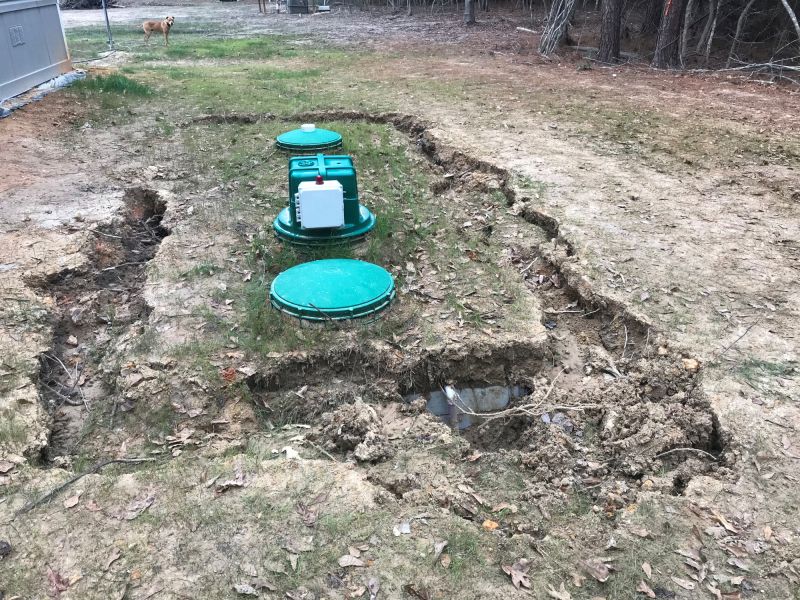
Septic system installation services are often needed when property owners in Denver County are building a new home or planning to replace an outdated system. In areas where municipal sewer connections aren’t available, a properly installed septic system is essential for managing wastewater effectively. Homeowners might seek local contractors to handle these projects to ensure the system is designed and installed correctly, preventing future issues such as backups or leaks that could disrupt daily life or impact property value.
Additionally, property owners may look for septic installation services after experiencing problems with their existing system, like slow drains, foul odors, or sewage backups. These signs can indicate the need for a new installation or upgrades to meet current standards. Local service providers can assess the site, recommend suitable solutions, and carry out the work to help maintain a safe and functional wastewater management system for homes and businesses throughout Denver County.
What is involved in installing a septic system? Septic system installation typically includes site assessment, designing the system, excavation, and setting up components such as the tank and drain field, performed by local contractors experienced in these services.
How do local service providers determine the right septic system for a property? They evaluate factors like soil type, property size, and usage needs to recommend a suitable septic system design that complies with local regulations.
What permits or approvals are needed for septic system installation? Local contractors are familiar with the permitting process and can assist in obtaining necessary approvals from municipal or county authorities before installation begins.
Can local pros handle repairs or upgrades to existing septic systems? Yes, many service providers offer repair and upgrade services to improve or restore the functionality of existing septic systems.
What should homeowners consider when choosing a septic system installation service? It's important to select experienced local contractors who are knowledgeable about regional codes, soil conditions, and installation best practices in Denver County and nearby areas.
Septic System Installation Planning - Property owners can explore options for installing a new septic system to accommodate a home expansion or new construction in Denver County, CO.
Septic System Design Ideas - Homeowners may work with local contractors to design a septic system that fits their property's size and soil conditions for reliable waste management.
Site Preparation Strategies - Property owners can learn about site preparation requirements, such as excavation and soil testing, to ensure proper installation of a septic system.
Permitting and Compliance Tips - Individuals can find guidance on navigating local regulations and permits needed for septic system installation in Denver County, CO.

If you are thinking about Septic System Installation for a property in Denver County, CO, this guide is meant to help you understand the work, the typical project types, and how different options might fit your plans.
When you are ready, you can use the quote form on this page to share a few details about your project. From there, local pros can review the basics and respond with options that match what you have in mind.



